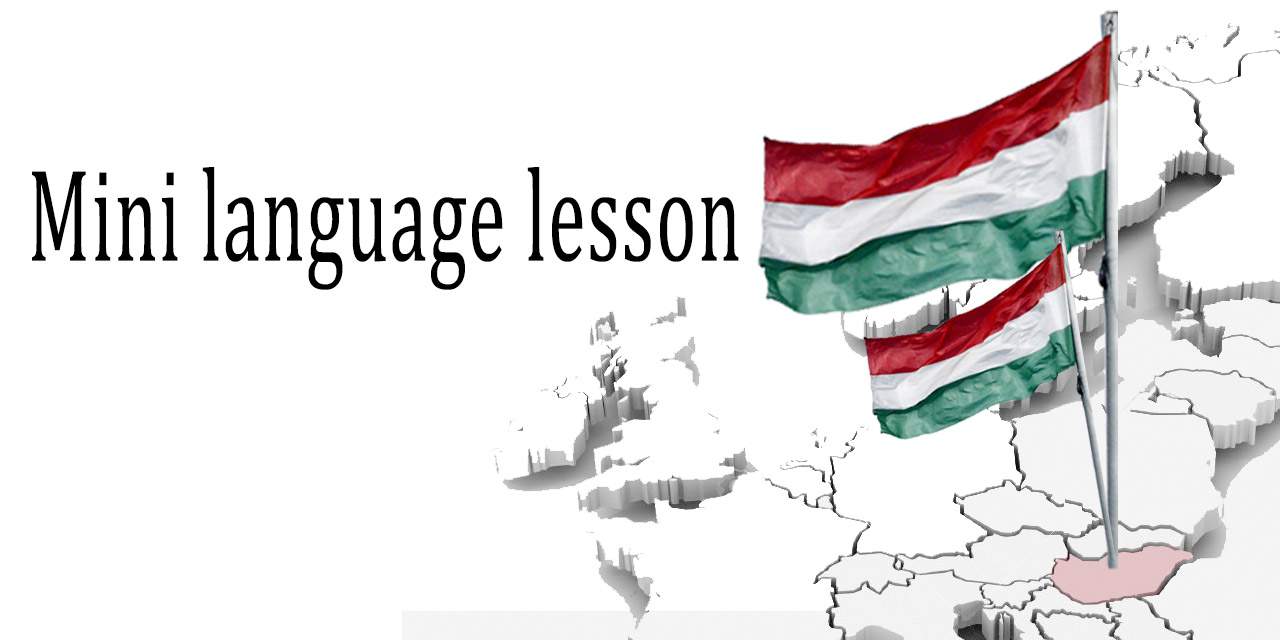Mini language lesson #23: Peculiar Hungarian sentences
In this episode, we are going to cover the topic of Hungarian palindrome sentences, which is another proof of the peculiarity of our language. Why not live with the chance and spice up your speech with phrases that read the same backward and forward? 😉
Palindromes belong to the group of wordplays, more precisely anagrams. According to the Cambridge Dictionary, a palindrome is a word or group of words that is the same when you read it forwards from the beginning or backwards from the end, e.g. refer, level.
Palindrome words are common in many languages, but what makes Hungarian special is that our language is so complex and flexible at the same time that we can create entirely sensible sentences (and also funny ones) that read the same backwards.
The articulation of letters do not have to match, and sometimes even the different accents do not count.
This is a fun approach to the Hungarian language, which does not make it any less difficult but proves how magical and playful it can be 🙂
Keep in mind that we are not linguists in any way, we’re just as dazzled by the curiosities of the Hungarian language as foreigners are. So this series doesn’t aim to explain the etymology of words, it’s more of a fun take on our language. We try to bring Hungarian closer to you with witty learning cards made by Daily magyar, a language-enthusiast person, whose posts give an insight into the complexity of Hungarian grammar. But don’t worry, it’s all done in an easy-going way so that it can make learning fun.
It seems like we are not the only ones fascinated by the Hungarian language, among others, zoom.hu shared a similar article some time ago. The following sentences are based on their collection, which we decided to pump up a bit.
Géza, kék az ég – Géza, the sky is blue
Indul a görög aludni – The Greek goes to sleep
Csak a mama makacs – It is only mama, who is stubborn
De ne sebesen edd! – But do not eat it fast!
Ennyi dinnye! – So much melon!
Nő legel a legelőn – A woman grazes on the grazing-land
Tekerek sok csomó mocskos kereket – I am reeling many dirty wheels
Aki takarít rám, az a mártír, a Katika – Who cleans for me is Katika, the martyr
Ló szalad a nyárfaerdőn, a szárodúdba zúg a szél, én a gúla felé lenézök, kis szérűrész sík közén elél e falu, ganélé szagú zab dudorász a nődre, a fránya dala szól – A horse is running in the poplar forest, the wind blows in your hovel, I look down at the pyramid, the village lives on the flat land of the small farm-yard, manure-scented oat hums at your woman, its damn song is playing.
Ön óv Ottót, a vak asszír is. Rí szotyoladobó, bánt is e mentolos út. Táci e régi bor, a vakolatjel, ó, néz rám székilile-szem. Eldob a hatóság agya, kelet rekkenő híre, botkocsány. Ég el a bálozó, rí vargabetű, tar ausztrál vekni. Csikósé a bér, ó, halkan hasít Elek. Panel, Ági-ridikül lemarad, óh, ki se lógat Nagy Ernő, ó, Ida, magőr ő. Cserre néző kósza lett erők, mór kajakosok, tufa te is, a járóletét gélelegye is ómódi. Kis, ámori patak a bálon a horkantó, Benőt, agutit, Natit, Antit ugat. Ön e botnak rohanó láb. A Kata-pír, ó, másik idom, ó, sí, egyel elégtétel órája. Siet a futkosó kaja króm körettel, a szóközén erre csörög ama dió. Önre gyantagól esik, hódaramellű, ki dirigál e napkeleti sahnak Lahoréba. És, ó, kicsin kevlárt szú arat, üt, eb, a gravírozó lába. Legényács, októberi hőnek kertelek agyagásót. A habod lemeszel, Ili, kész már Zénó. Lejt a ló kavaró bigére, Icát, tusolót nemesít nábobod. A lotyó szír, s Írisz szakavatott óvónő. – This is definitely untranslatable, only serves the aim of amusement
Even though we tried to collect realistic sentences, we realise that the occurrence of most of these sentences in our daily life is not too probable. Still, we think it is useful to know about their existence 🙂
Featured image: Daily News Hungary
Source: Daily News Hungary
please make a donation here
Hot news
What happened today in Hungary? – 19 April, 2024
British American Tobacco is expanding production in Hungary
Budapest mayoral candidate Vitézy promises thousands of units of affordable housing
Habits regarding tipping in Hungary may shock you
PM Orbán’s chilling warning: NATO is sliding into the war
VSquare: PM Orbán’s only son, Captain Gáspár, may be creating new Hungarian super secret service




